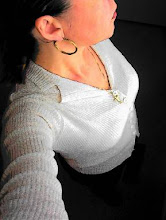My Grandfather
When the summer starts to wane, my mind always drifts to my Grandfather (I called him Deda).
It is at this time in September when he passed away.
My Deda was a gentle man, at least he was as I remember him.
I am told that he was hard and tough, and had a temper unrivaled.
I never knew the man that they described in that way.
My Deda was one of the most non-judgmental people I have ever known.
I never heard him say an unkind thing about anyone.
He used to carry me around on his shoulders making clucking noises, stick his finger in sugar and then in my mouth, when I was very little.
He was gentle and silly with me.
I knew that he had suffered in his life.
He spent time in a Hungarian work camp because his brother who was a big Communist fingered him as anti.
I know that he spent time in the Dachau Concentration Camp.
Story tells that he was in the Pijaca (open market) during WWII when a snipers bullet killed a German and at that time, the Nazis took 100 for every 1 German.
My Grandfather was one of the one hundred they rounded up and took to Dachau.
He survived.
He never, ever talked about his experience in the Camp to anyone.
I know.
I’ve asked.
Everyone.
However, he did say that when he came home, he came home a different person.
From a man of 95kilo to a man of 44kilo, he called it the “Nazis Jewish Diet”.
He said that the Russians dropped him at the New Yugoslavian border at the end of the war, and he walked the hundreds of miles home. When he reached that same old gray house that I hold as my life touchstone, he wouldn’t enter it.
He (and Majka (Grandmother)) said that he went straight out to the field at the back of the house, Majka prepared a lye solution, he buried his clothes and shaved his body and used the lye solution to kill the lice and other things crawling over his body before he touched anyone in the household.
He said that bodies were floating in the Tisa River, coming downstream from wherever they were murdered and dumped.
I was told that the Tisa River is still considered the river of the dead.
I cannot argue with that.
My mother almost drowned in that river when she was a young girl, and I saw my first dead body on the grass by the banks of that river when I was 11 years old.
A young man had drowned when he was caught in the current.
I stood fascinated by his young blank face and blue pallor…thinking to myself over and over again “he’s dead”. I couldn’t come to grips with the idea that someone so young could die.
When I was 21 and visiting, the whole town attended the funeral of a young man who had waded into the river and shot himself in the head from sadness or depression.
People said that the river holds the memory of many suicides, because the people who chose to kill themselves preferred to go and “be with their ancestors”.
But, I digress…
When I was a young girl visiting one summer, a man came looking for my Grandfather. When he passed the window of the pantry, I thought it was Deda back from the field…it wasn’t.
It was his brother.
A brother that I didn’t know existed.
He visited for a few minutes, and said he would be back.
I hounded Deda to tell me why I never knew that this brother of his existed.
Deda told me that they (he and his brother) hadn’t spoken in over two decades.
“Why” I asked over and over….I was relentless.
Finally, he told me:
He said that his brother was in love with a Hungarian woman before the war.
He (his brother) was also in Dachau because he was one of the 100 for 1, picked up on the same day in the same market as my Grandfather.
However, over the two years that Deda and his brother were in Dachau, they were separated.
When Deda returned to Petrovo Selo, he regularly went to the Post Office to check the lists of the dead to look for his brothers name, and one day, he saw it.
After a few days, he went to the woman that his brother loved and told her.
She hung herself.
A few months after, his brother returned….and never forgave him.
Deda held that.
As irrational as it sounds, he understood that.
When I think about what the people of their generation endured, my heart swells.
Deda’s stories, and a million others.
When I hear memories and stories like these, I understand why Serbians have such a heavy spirit.
Why during the bombing of Serbia, Serbs held hands over bridges and sang while NATO bombs fell.
Why they stood up, even though they knew they didn’t have a chance.
Why there is such a word as “Inat” (meaning “whatever the consequences”).
Why people were partying in the streets while bombs fell. My Uja Lazar said, “if it’s going to be our last night on earth, let’s celebrate and not die like dogs cowering in the corners of our homes”.
I understand that.
And I miss sitting on Deda’s little bench in front of the house, with my head on his shoulder smelling the mixture of hay and rakija on his sweater, listening to him talk.
Rest in Peace.
Saturday, September 13, 2003
Posted by
Radmila
at
7:39 p.m.
![]()
Labels: Family, Sentimental
Subscribe to:
Comment Feed (RSS)










|